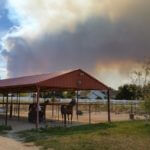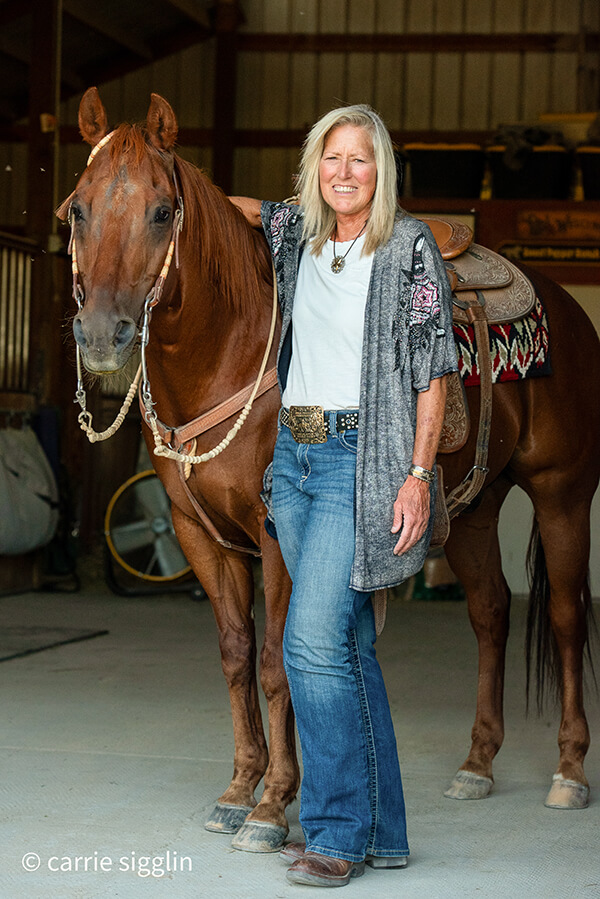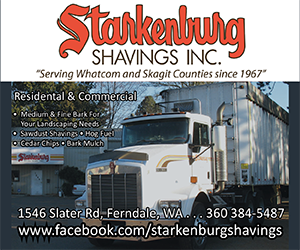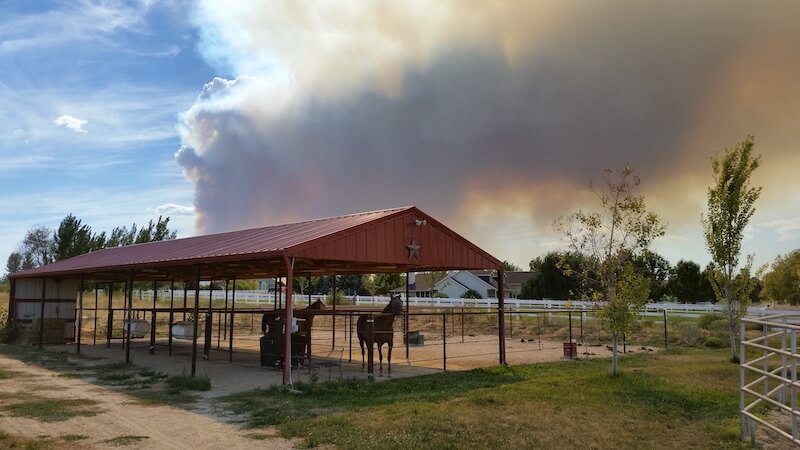Develop an Evacuation Plan for Your Horse Property
By Alayne Blickle

Wildfire can quickly become a threat to rural landowners. Since most horse owners live in the interface between urban and rural areas, action needs to be taken quickly to save the lives of your animals and reduce property damage. Being proactive is the safest and best plan.
Fires on horse properties can have different causes – barn fires, hazardous materials spills, lightning strikes, or wildfire spreading. All may require emergency evacuation. When living in a dry, flammable environment it is imperative that you are prepared to quickly move your horses to a safe area. Fire travels rapidly, especially when wind is involved.
If a wildfire breaks out in your area, decide quickly whether you need to leave. Late evacuation is a deadly option, risking loss of lives and property. If you are unprepared or wait until the last minute to evacuate, you could be told by emergency officials to leave your horses behind.
Once you leave your property, you have no way of knowing how long you will be kept out of the area. If left behind, your horses could be unattended for days without care, food, or water. If you decide to stay and actively defend your property from fire, be aware of the risks.
Everyone’s situation differs according to the size and nature of their horse enterprise. Therefore, every horse owner needs to develop an individual evacuation plan before hot weather and fire season arrive. Begin your planning with these tips:
The Horses for Clean Water website has additional firewise information on reducing wildfire risk on your property or for evacuation planning with horses: www.horsesforcleanwater.com/firewise-emergency-preparedness
It’s easy to think wildfires only happen to other people, but this kind of thinking can lead to tragic consequences. Don’t wait until an evacuation to start planning. Act now to prepare a firewise plan for your horse property.
This June join Alayne Blickle to learn more about wildfire preparedness and other topics:
Online Class––June 4, 6 – 7 PM, (Pacific) Composting Horse Manure. Register at
www.horsesforcleanwater.com or [email protected]
Hobart, WA
Saturday, June 9 from 9 AM–12 PM
Workshop & Tour: Building a Riding Arena
Free! Register: kingcd.eventbrite.com, (425) 282-1949 or [email protected]
Cle Elum, WA
Saturday, June 9, 6:30 – 8:30 PM
CLASS: Firewise for Horse Owners, Registration or questions: [email protected]
Cle Elum, WA
Sunday, June 10, noon to 2 pm
Farm Tour: Horse Keeping Cle Elum Style! Registration or questions: [email protected]
Maple Valley, WA
Thursday, June 14, 6:30 – 8:30 pm. Farm Tour: Super Simple Horse Keeping
Free! Register: kingcd.eventbrite.com, (425) 282-1949 or [email protected]
Nampa, ID
Sweet Pepper Ranch, June 21 to 24, Sweet Pepper Ranch Cowgirl Retreat. Register at the Sweet Pepper Ranch website or email [email protected].

Alayne Blickle began in the 1990’s as a pioneer in water conservation and natural resources conservation by creating the entrepreneurial consulting business, Horses for Clean Water, an award-winning internationally acclaimed education program that looks for horse-healthy, nature-based solutions to land management challenges. She continues this work today partnering with agencies, organizations, and horse owners throughout North America and worldwide. She is a regularly contributing writer and photojournalist to several equine publications.
Alayne lives with her horse trainer husband, Matt Livengood, in southwestern Idaho where they raise and train AQHA horses and mustangs on their eco-friendly horse ranch. Contact her through the Horses for Clean Water website or through their ranch website Sweet Pepper Ranch.
For more information contact Alayne at [email protected] or 206-909-0225.






